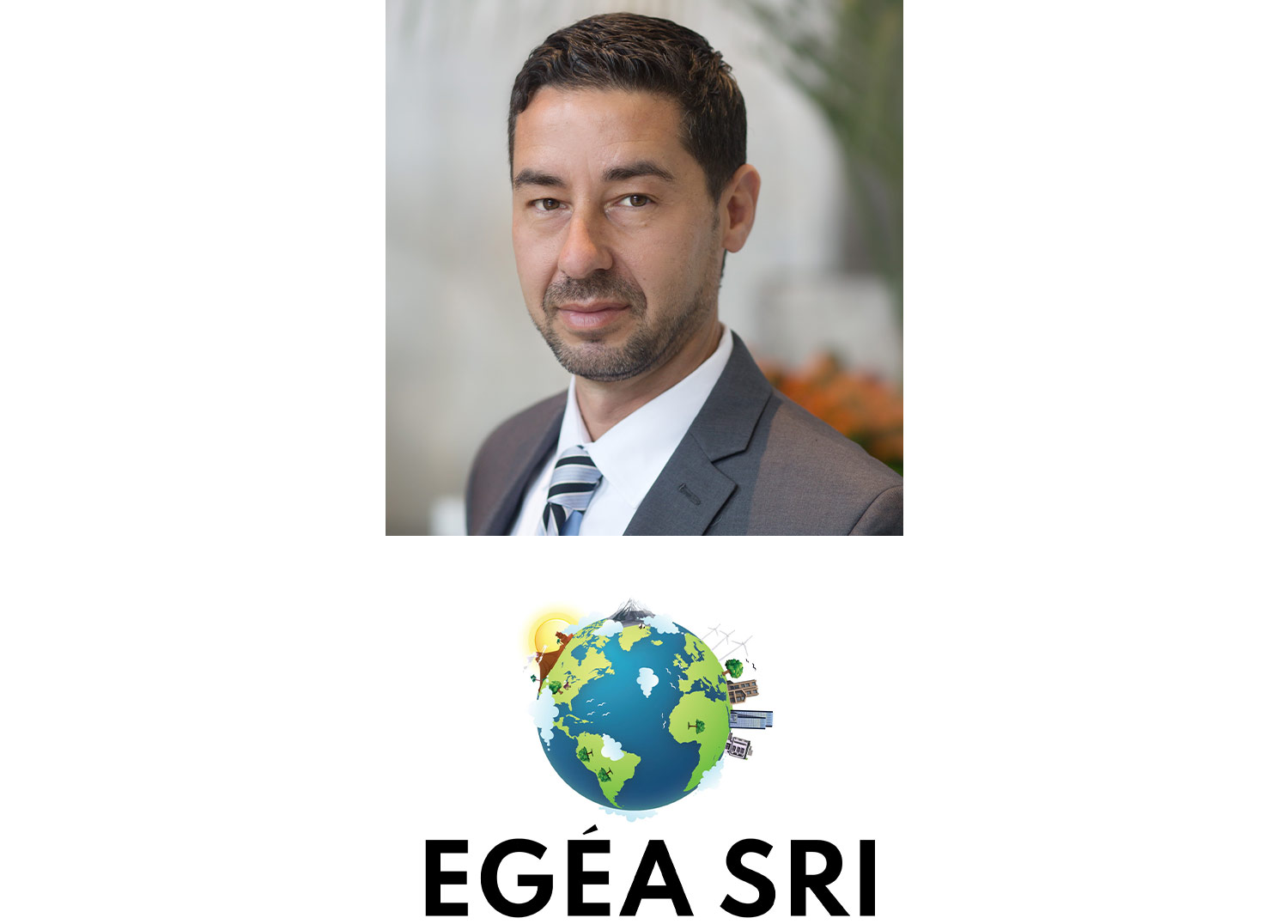CHICAGO, IL / ACCESSWIRE / September 22, 2021 / When you think of the conventional approach to investing in your Roth IRA, Traditional IRA, Investment account or 401K, you probably have in mind growing your money and earning higher returns. You want to see your funds accrue in value over time. Your goals might be to save for retirement or perhaps supplement your current income. In the traditional sense, investing is strictly a commerce enterprise.
But what if you, as an investor, want to do your part to make the world a better place? Maybe there is a way to leverage investing to make positive changes in society. Can you be a socially conscious investor with the intention of combining high returns and yielding tangible benefits that leave a positive footprint?
Enter socially responsible investing, or SRI. SRI is any investment strategy that seeks to maximize financial return while at the same time advancing an idea, belief, or cause that is important to you. Yes, it is possible to invest in corporations, ETFs, and mutual funds that are aligned with your personal beliefs and values system.
Environmental, social, and governance (ESG) analysis is the underlying factor in virtually all SRI strategies. ESG risks and opportunities are the criteria from which a set of standards is created to allow socially conscious and sustainable investors to screen investments. ESG, SRI, Green and Sustainable investing are often used interchangeably; however, these investment approaches are each slightly different:

Socially Responsible Investing
Socially responsible investing is thought to have started with the Religious Society of Friends (Quakers) in 1758 when the Quaker Philadelphia Yearly Meeting prohibited members from participating in buying or selling humans as part of the slave trade. One of the early adopters was Methodist founder John Wesley, whose sermon "The Use of Money" outlined his basic tenets of social investing: not to harm your neighbor through your business practices and to avoid industries like tanning and chemical production, which can harm the health of workers.
"In general, SRI investors encourage corporate practices that are morally grounded and promote environmental stewardship, consumer protection, human rights, and racial or gender diversity," says Chartered SRI Counselor, Alex Papadopoulos.
For example, some socially responsible investors avoid investing in businesses perceived to have negative social effects such as alcohol, tobacco, gambling, pornography, weapons, and fossil fuel production. Essentially, for socially responsible investors, morality trumps the bottom line.
At its core, however, the goal of SRI is to tie the power of the financial markets to positive forces in this world - harnessing capitalism to bring about changes that will benefit more people than just those who are profiting financially.
Sustainable Investing
As a blanket investment term, sustainability has become a catch-all for a company's efforts to "do better" or "do good." This investment approach is best defined by the three pillars of sustainability: economic growth, environmental protection, and social progress, also referred to as "people, planet, and profits."
"In a nutshell, sustainable investing directs capital to companies fighting climate risk and environmental destruction, while promoting corporate responsibility. It encompasses all types of SRI Investing" says Alex.
Sustainable investors, ranging from global institutions to individuals, utilize a combination of traditional investment approaches together with ESG insights to pursue their investment goals. Sustainable investing seeks to find companies that are positioned to grow while also doing good and pioneering better business practices. This approach blends a focus on return with a desire to do good.
US SIF Foundation's 2020 biennial report showed that sustainable investing assets now total $17.1 trillion, a 42 percent increase over 2018.

Green Investing
Green investing, sometimes also known as eco-investing, is a practice where investors use their investment dollars to back businesses and other enterprises that are eco-friendly. These may be companies that implement green policies in their day-to-day operation or firms that are specifically committed to implementing conservation, developing renewable energy sources, educating the public about green initiatives, and more.
Green investing is a subset of a wider investment strategy called socially responsible investing, or SRI. As its name suggests, SRI is a tactic where investors allocate their assets to support endeavors that line up with their personal belief systems, particularly in areas like sustainability and social justice.
"All of these practices are also sometimes known as impact investing, in that they're investments with goals including making some sort of external impact on global or social issues," says Alex.
Green investing focused on climate change is the most important aspect of all SRI investing because - as evidenced by the United Nations report and recent weather events here in the USA and around the world - we are at the point of no return in terms of climate change.
The good news is that the combination of consumer demand and investment performance have sparked an increase in available green investments across the board.
ESG
ESG focuses on three specific, foundational pillars that are crucial to today's corporate management and investors alike. Environmental issues can include pollution, climate risk, exposure to extreme weather, carbon management, and use of scarce resources. Social issues can include product safety, human rights, worker safety, customer data protection, and diversity and inclusion. Governance issues can include factors such as accounting standards compliance, succession planning, anti-competitive behavior, and a strong ESG management process.
ESG data and metrics are used to gain insights into the success and value of a company's performance and policies in order to mitigate risk and identify superior risk-adjusted returns.
"Essentially, the focus of ESG investing is on increasing the bottom line through investments in responsible companies that are being well managed," Alex says.
Profit Vs. Sustainability?
Despite SRI's significant popularity, there remains the misperception that in order to make the world a better place you have to relinquish investment performance. "Too many investors have bought into this zero-sum game that is absolutely not true", Papadopoulos said.
Industry research and data support Papadopoulos' contention.
The Morgan Stanley's Institute for Sustainable Investing White Paper offers evidence that profit and sustainability can coincide when it comes to investments. In fact, there are some distinct upsides to ESG (Environmental, Social, and Governance) investing. "Research conducted on the performance of nearly 11,000 mutual funds from 2004 to 2018 shows that there is no financial trade-off in the returns of sustainable funds compared to traditional funds, and they demonstrate lower downside risk."
The Morgan Stanley report revealed that from January 2020 to June 2020, U.S.-based sustainable equity funds outperformed their traditional peers by a median of 2.8 percent in terms of total returns.
"You are not necessarily giving up performance by being invested in a sustainable portfolio versus a regular portfolio and the data shows that SRI portfolios can demonstrate lower downside risk," Papadopoulos said.
Additionally, the US SIF also reported that investments in SRI assets grew at nearly 40 percent year over year since 2016.

At its core, the goal of SRI is to tie the power of the financial markets to positive forces in this world - harnessing capitalism to bring about changes that will benefit more people than just those who are profiting financially.
Investors are increasingly aligning their values and leveraging their investments for the public good, which creates new demands on institutions to make ESG performance and sustainable investment part of their long-term strategy.
About Alex Papadopoulos
Alex Papadopoulos has been providing sustainable wealth management advice to his clients since 2003. He provides individuals, families, and businesses with guidance and education in all areas of wealth management, including retirement planning, portfolio construction, risk management, and wealth-transfer needs. He earned the designation of Chartered SRI Counselor™ from the College of Financial Planning and is the President of Egéa SRI.
Invest Responsibly | Sustainable Investing | EGÉA SRI (egeasri.com)

CONTACT:
877-630-3432
egeasri@ihtwm.com
Invest Responsibly | Sustainable Investing | EGÉA SRI (egeasri.com)
Disclosure:
Securities offered through LPL Financial. Member FINRA/SIPC. Investment advice offered through IHT Wealth Management, a registered investment advisor. Egéa SRI and IHT Wealth Management are separate entities from LPL Financial.
The information provided here is for general information only and should not be considered an individualized recommendation or personalized investment advice. The investment strategies mentioned here may not be suitable for everyone. Each investor needs to review an investment strategy for his or her own particular situation before making any investment decision.
All investing involves risk including loss of principal. No strategy assures success or protects against loss. Any performance mentioned is historical and past performance is no guarantee of future results.
Any economic forecasts set forth in this material may not develop as predicted and there can be no guarantee that strategies promoted will be successful.
Socially Responsible Investing (SRI) / Environmental Social Governance (ESG) investing has certain risks based on the fact that the criteria excludes securities of certain issuers for non-financial reasons and, therefore, investors may forgo some market opportunities and the universe of investments available will be smaller.
CRPS conferred by the College for Financial Planning.
SOURCE: EGÉA SRI
View source version on accesswire.com:
https://www.accesswire.com/664678/ESG-SRI-Sustainable-and-Green-Investing-Whats-the-Difference
